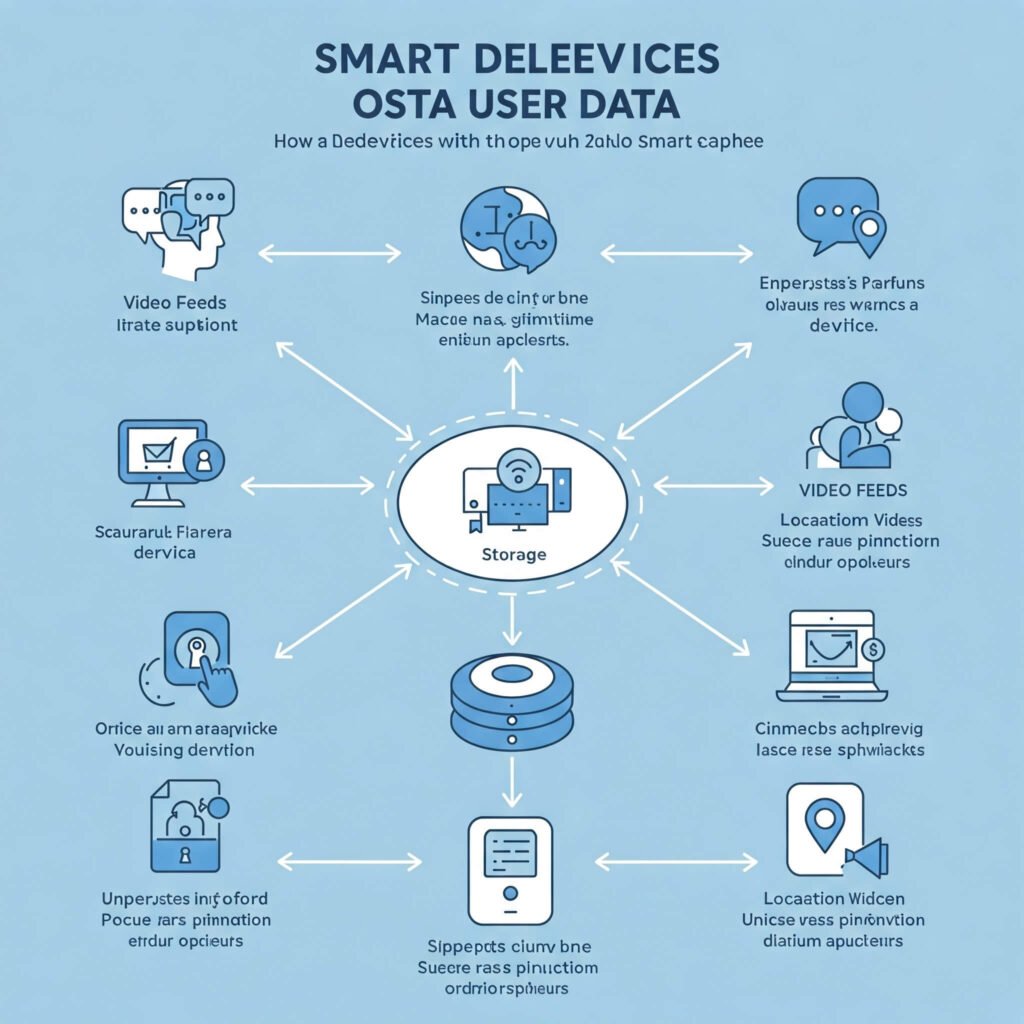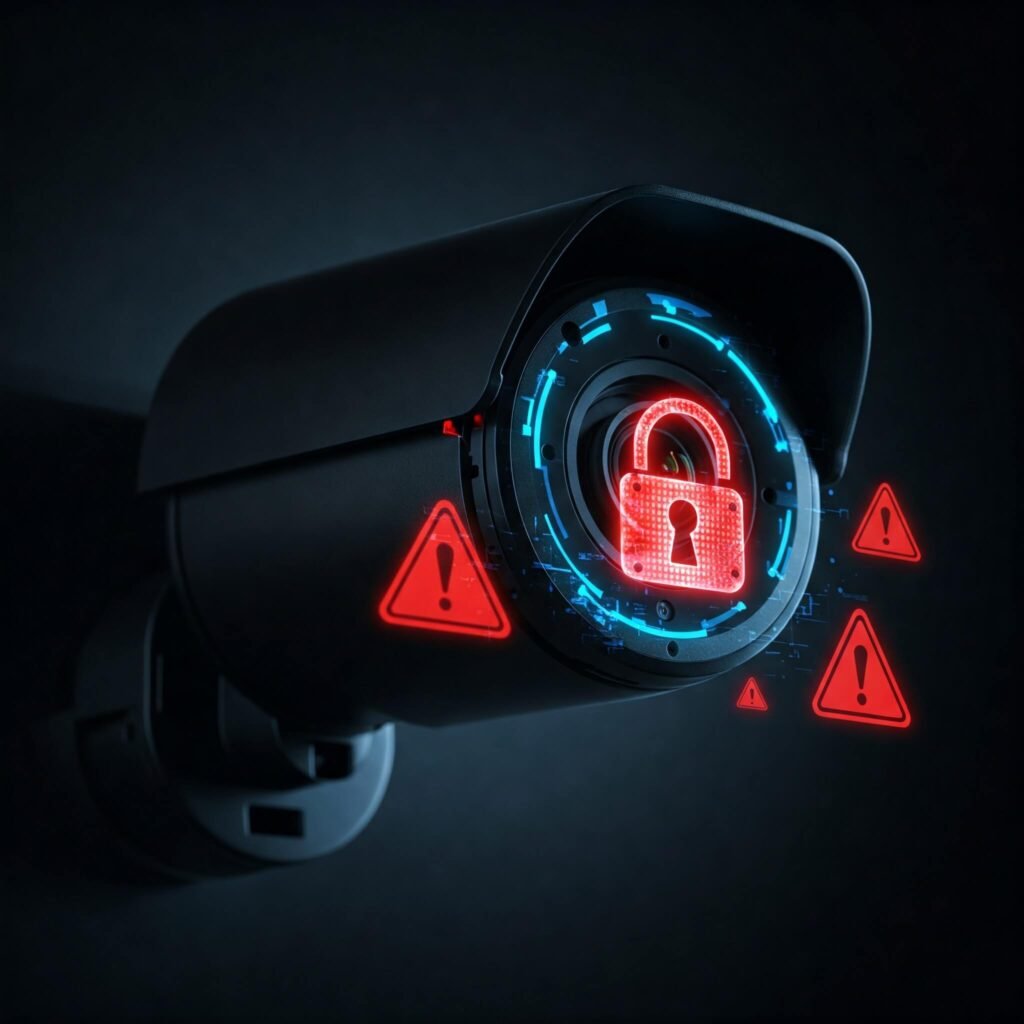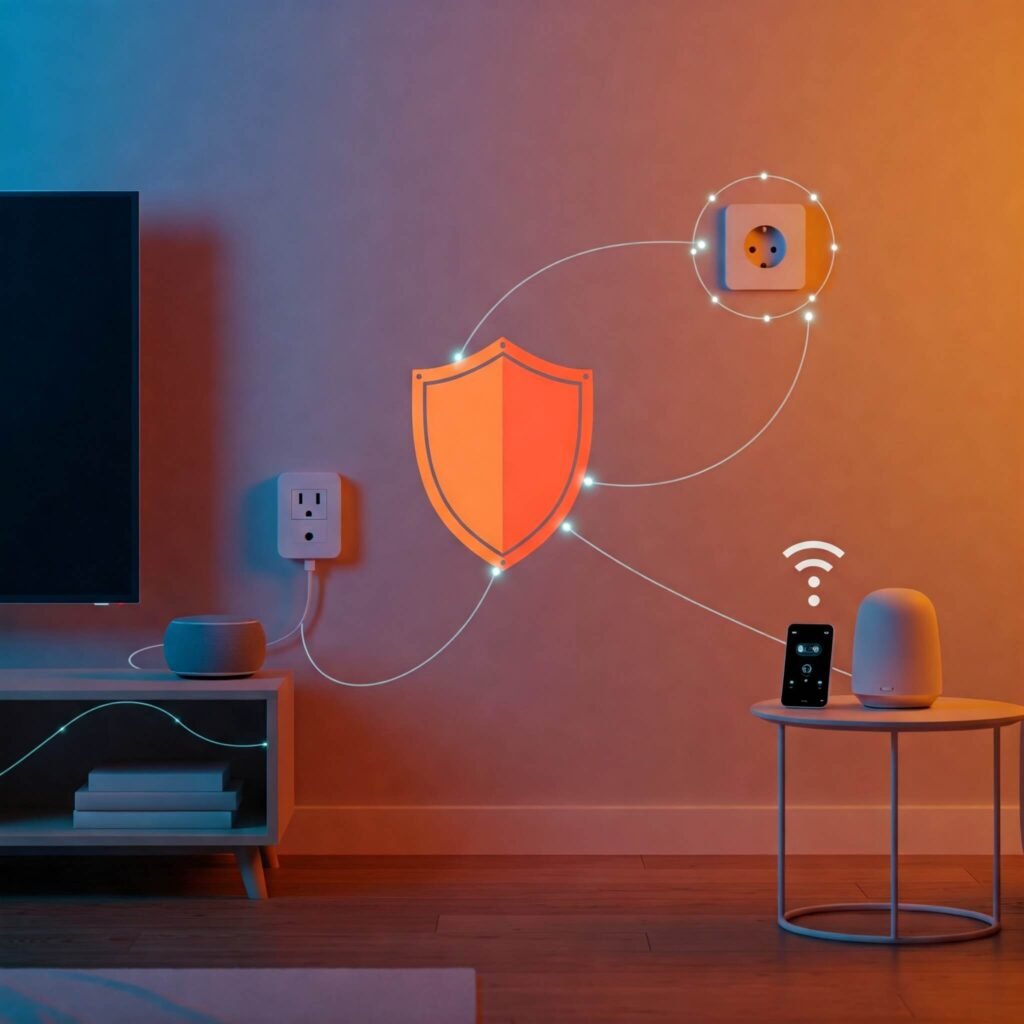Are smart devices spying on you? It’s a question many homeowners ask as smart speakers, cameras, and thermostats become household staples in 2025. While these devices offer convenience, they can collect data on your habits, raising privacy concerns. This blog dives into whether smart devices are spying on you, explores real-world examples, and provides actionable steps to safeguard your privacy. Backed by insights from experts like Consumer Reports and Wired, we’ll uncover the truth and help you enjoy smart home tech securely.
Are Smart Devices Spying on You? Understanding the Risks
Smart devices make life easier, but are smart devices spying on you by collecting more data than you realize? According to Consumer Reports, 2023, 80% of smart devices gather user data, often for ads or analytics. Here’s why this matters:
- Data Collection: Devices like smart speakers record voice commands, sometimes storing them indefinitely.
- Third-Party Sharing: Some companies share data with advertisers or partners.
- Security Risks: Hackers can exploit vulnerabilities to access cameras or microphones.
Let’s explore how specific devices raise concerns and what you can do about it.

1. Smart Speakers: Are They Listening?
Smart speakers like Amazon Echo or Google Nest Audio are central to smart homes, but are smart devices spying on you through always-on microphones? These devices listen for wake words like “Alexa” but may record unintended conversations.
How Smart Speakers Raise Spying Concerns
- Accidental Recordings: Amazon admitted in 2019 that Alexa sometimes records without a wake word (Wired, 2023).
- Data Storage: Voice clips are stored for analysis unless manually deleted.
- Privacy Controls: Amazon and Google offer opt-out settings (Amazon Echo Privacy).
Example: A family discovered their Echo recorded a private conversation, later accessed by a contractor via Amazon’s servers.
2. Smart Security Cameras: Watching More Than You Think?
Smart cameras like Ring or Nest Cam enhance security, but are smart devices spying on you with constant video feeds? These devices can be hacked or misused if not secured properly.
Why Smart Cameras Pose Spying Risks
- Hacking Vulnerabilities: In 2023, hackers accessed Ring cameras, harassing homeowners (NYT Wirecutter, 2024).
- Data Sharing: Ring shared footage with police without user consent until 2024 (FTC, 2023).
- Cloud Storage: Videos may be stored unencrypted, risking leaks.
Example: A hacker used a Ring camera to spy on a family’s living room, broadcasting their activities online.

3. Smart Thermostats: Tracking Your Habits?
Smart thermostats like Google Nest or Ecobee save energy, but are smart devices spying on you by tracking your routines? These devices collect data on your home’s temperature and occupancy.
How Smart Thermostats Affect Privacy
- Behavioral Data: Nest tracks when you’re home to optimize heating (Google Nest Privacy).
- Third-Party Access: Some apps share data with utility companies.
- Minimal Risk: Less invasive than cameras or speakers but still collects data.
Example: A utility company used thermostat data to target ads for energy plans, raising privacy flags.
4. Voice Assistants: Always-On Ears in Your Home
Voice assistants in smart speakers, TVs, or phones power smart homes, but are smart devices spying on you with constant listening? Alexa, Google Assistant, and Siri process voice data, often storing it for “improving services.”
Why Voice Assistants Spark Spying Fears
- Data Retention: Google stores voice searches unless disabled (CNET, 2024).
- Human Review: Contractors may review recordings for quality control.
- Privacy Settings: Most allow data deletion but require manual action.
Example: A couple found their Google Assistant logged private discussions, later used for targeted ads.
5. Other Smart Devices: Hidden Privacy Risks
From smart TVs to plugs, are smart devices spying on you across your home? Lesser-known devices also collect data, often without clear disclosure.
Lesser-Known Spying Concerns
- Smart TVs: Samsung TVs track viewing habits for ads (EFF, 2023).
- Smart Plugs: Monitor energy usage, sharing data with apps.
- IoT Vulnerabilities: Weak encryption risks hacks across devices (PCMag, 2024).
Example: A smart TV sent viewing data to advertisers, leading to intrusive pop-up ads on a user’s phone.

How to Protect Your Privacy from Smart Device Spying
Worried about whether smart devices are spying on you? Here are actionable steps to secure your smart home:
- Review Privacy Settings: Disable data sharing in device apps (Wired, 2023).
- Use Strong Passwords: Secure your Wi-Fi and device accounts with unique passwords.
- Enable Encryption: Choose devices with end-to-end encryption for data.
- Limit Microphone/Camera Access: Mute smart speakers or cover cameras when not in use.
- Regular Updates: Keep firmware updated to patch security flaws.
Pro Tip: Check privacy policies before buying—Google and Amazon offer transparent settings, while lesser-known brands may not.
Benefits vs. Risks: Are Smart Devices Worth It?
Despite concerns about whether smart devices are spying on you, they offer undeniable benefits:
- Convenience: Control lights, locks, or thermostats remotely.
- Security: Monitor your home with cameras and doorbells.
- Savings: Smart thermostats cut energy bills by 10-15% (CNET, 2025).
Data Point: 63% of smart device users feel the benefits outweigh privacy risks if secured properly (Consumer Reports, 2023).
Challenges of Smart Device Privacy
Addressing whether smart devices are spying on you comes with challenges:
- Lack of Transparency: Some brands hide data practices in fine print.
- Complex Settings: Privacy controls can be hard to navigate.
- Evolving Threats: Hackers develop new ways to exploit devices.
Solution: Opt for reputable brands like Google or Amazon, which offer robust privacy tools, and stay informed via resources like EFF.
Conclusion: Stay Safe While Enjoying Smart Devices
Are smart devices spying on you? The answer depends on how you use and secure them. While smart speakers, cameras, and thermostats collect data, you can minimize risks with strong passwords, encryption, and privacy settings. By choosing trusted brands and staying proactive, you can enjoy the convenience of a smart home without compromising your privacy. Start reviewing your devices today and take control of your data in 2025!

































